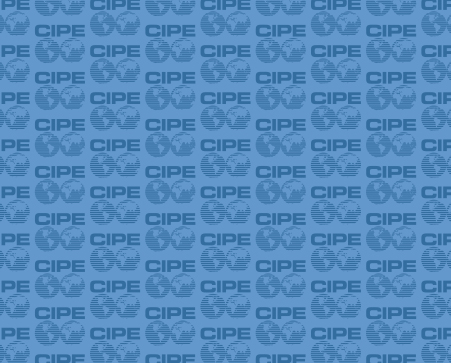Providing the poor with access to credit at reasonable interest rates does seem to be a panacea for alleviating poverty. With credit, a person can produce a good or provide a service that will generate an income with which basic needs can be met. Credit also allows a person to utilize their talents, skills, and initiative to fill a niche in the market, spurring economic and entrepreneurial growth in a community and country. In rural Guatemala, for example, a woman bakes bread every morning in a stove bought with a small loan and sells the loaves to a shop in her village. In Nepal, a man buys five water buffalo with a small loan and sells the milk each morning to his neighbors.
Though it is difficult to estimate the affect of such micro-entrepreneurial activities on a country’s overall GDP, the impact on individuals and society is immeasurable. Small loans stimulate private entrepreneurship and expand economic freedoms crucial to building a market economy and democracy. They empower the poor with the freedom to make choices regarding how they use and save their income. If spent on food, health care, shelter and education, individuals can more easily escape the poverty trap. Raising the income level and standard of living among the world’s poor also builds a middle-income class that is more able to participate in civic activities and demand greater accountability from the government.
Microfinance institutions (MFIs) that provide the poor with access to credit have sprung up in almost every country from Bangladesh to Tajikistan. In Central Asia, the microfinance sector has boomed, especially in poorer Kyrgyzstan, where approximately 33 percent of the population lives below the poverty line. Currently, approximately 450,000 Kyrgyz have taken out loans with the more than 300 MFIs operating in the country. The loans have been used for entrepreneurial endeavors in sectors such as agriculture, textiles, and tourism.
For microfinance to be a successful tool for stimulating entrepreneurship and expanding economic freedom, borrower must have a sound understanding of their financial obligations and legal rights. While most MFIs do educate their clients, civil society has also played a key role in improving the flow of financial and legal information to borrowers. CIPE’s partner in Kyrgyzstan, the Association of Microfinance Institutions (AMFI), conducts financial literacy campaigns to educate the public on how to be a responsible borrower and maximize opportunities available through microfinance lending.
Through creative TV spots, glossaries of financial terms, informational brochures and its website in Kyrgyz and Russian, AMFI’s informational campaign has reached more than 200,000 people in all regions of Kyrgyzstan. Equipped with a greater understanding of their financial responsibilities, borrowers can become successful entrepreneurs—an asset to their country’s economic and democratic transition.
Photos from AMFI TV spots: http://amfi.kg/ru/library/video
Bobbie Jo Traut is a Program Officer for Eurasia at CIPE.
Published Date: April 19, 2013


